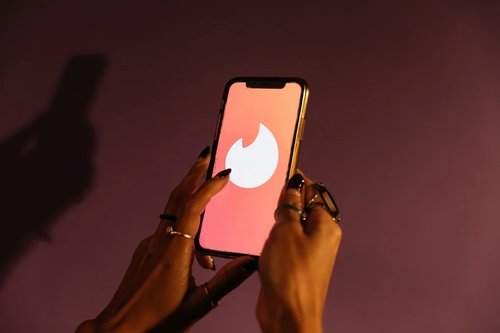Decruiter: a profession in the making?
Oct 21, 2021
4 mins


Journaliste indépendante
Danielle Baskin, who is in her thirties, spends most of her time in a San Francisco garage making jokes on the internet. This has worked out pretty well for her as her gritty artistic work has been seen in recent years in the New York Times, Forbes and the Guardian. With The Decruiter, which she started in 2017, she provides a platform for anyone who has serious doubts about their professional development to talk through their concerns. So we decided to have a chat with her.
Several American media outlets have been interested in your work, but few people know about you elsewhere. Can you share what led you to use the web as a creative space?
I grew up with the internet and have been developing projects online since I was a kid. I started tinkering with it when I was maybe eight or ten years old. Then as a teenager I learned how to use several tools. I always saw multimedia platforms as the best way to express myself. Today I use different design platforms and my artistic projects are always really playful. Some are really just for laughs, others are more serious works –– and some start as jokes but end up becoming serious projects, like the Decruiter.
How did you come up with this idea?
It all started in 2017 when I was applying for jobs. I have an unusual résumé. At every interview, I was asked to talk about my professional experience, but most of the projects I’d worked on up until then were considered “non-experiences”. I’ve never worked in a company. I’ve always run my own business by setting up a series of projects. This whole process was a bit laborious. I realized that I’d become very skilled at talking to people who feel out of place, and helping them figure out if they are “qualified” enough to leave their job. In the beginning, it was a joke with some friends and I created this space without telling anyone about it. I shared the link on Twitter with some people who didn’t seem to be fulfilled professionally. Then others stumbled upon the link by chance, or while visiting my site. One thing led to another, and I started to get phone calls. The conversations, which are free of charge, start out with simple questions, but can quickly turn into a particular kind of therapy.
Do the people who contact you all have the same background? Do you face any recurring questions or problems?
Their backgrounds are relatively different and they face a variety of issues. For example, I recently spoke with a fiftysomething woman who works in tech. She felt blocked in her career and pushed aside because of her age. But I also spoke with a philosophy professor having a career crisis. He struggled to express his dissatisfaction with the enormous effort and sacrifice he had made to be a part of academia. The conversations are quite varied and very personal, but I think I can identify some recurring themes after these four years: problems with hierarchical relationships, unhealthy management, and toxic work relationships; a feeling that there is a disconnect between what someone considers worthwhile and what they actually do; or a feeling that they are contributing to an economic and social model that isn’t moving in the right direction. Mostly it’s that existential question that affects us all as human beings: is there another version of myself? Who could I become if I were somewhere else?
Isn’t this related to the central role of work today?
I sometimes feel that many people make the mistake of being over-invested in their professional life. They think it’s a problem if they are not passionate about their job, and forget that work is primarily a way to earn a living. Sometimes we have to look elsewhere to find the reasons for our dissatisfaction. Perhaps we live in a city that is no longer right for us. We may need to make more time for an activity or a hobby. Or we may need to reexamine the role of work in our lives. Quite often, I’ll get calls that start out talking about strictly professional subjects and then end up being more general conversations.
How does someone know if they’re truly ready to quit their job?
I usually ask everyone the same question: “What would you do tomorrow if you didn’t have to go to work?” Their answers are a good indicator of their motivation. Some have a very clear idea of how they would spend their time, others immediately mention the need for a vacation and time off, others have no clue. I base the advice I give them on that. They’re often relieved to talk to someone outside of their professional or personal circles to put the need they’re expressing into perspective. I would say that in the end, I decruit about 20% of the people who call me.
Did the Covid-19 pandemic have an impact on your decruiting?
At the height of the pandemic, a lot of people who were about to leave their jobs had to put their plans on hold. This past year has been extremely stressful for everyone. There were layoffs and a lot of other people were worried about losing their jobs. Within companies, relationships between management and staff were strained, and already complicated relationships with superiors became downright toxic: the pandemic also brought to the surface certain issues that had been simmering underneath. This period of suspension is coming to an end and, as life seems to be returning to normal, the number of calls has been increasing. I don’t charge anything for the calls and I can’t devote too much time to them. I do one a week and my friends help me out with them. I think it would be really cool to get the word out about it more and have a big team of interviewers. Just keep in mind that it’s a lot of intense emotional work.
Translated by: Kalin Linsberg
Photo: WTTJ
Follow Welcome to the Jungle on Facebook on LinkedIn and on Instagram and subscribe to our newsletter to get our latest articles every day!

More inspiration: Follow hiring trends

Hilke Schellmann exposes the flaws in AI that control your next job offer
AI tools promise fairness in hiring but often fail. Hilke Schellmann reveals how these flawed systems shape careers and why transparency is crucial.
Dec 23, 2024

How AI coaching can give young job hunters an edge
Considering a career coach but don't have the resources to pay for one? AI might be able to help.
Dec 12, 2024

Are internships replacing entry-level jobs?
If an entry-level role requires years of experience, young job hunters are already at a disadvantage …
Mar 06, 2024

Swipe right for success: Using dating apps to job hunt and network
Genius networking move or master manipulation?
Jan 30, 2024

Job search in 2024: A candid look at the US job market
Are layoffs coming to an end? Will you finally land a job in your dream industry? Let’s see what the market has in store …
Jan 22, 2024
The newsletter that does the job
Want to keep up with the latest articles? Twice a week you can receive stories, jobs, and tips in your inbox.

Looking for your next job?
Over 200,000 people have found a job with Welcome to the Jungle.
Explore jobs